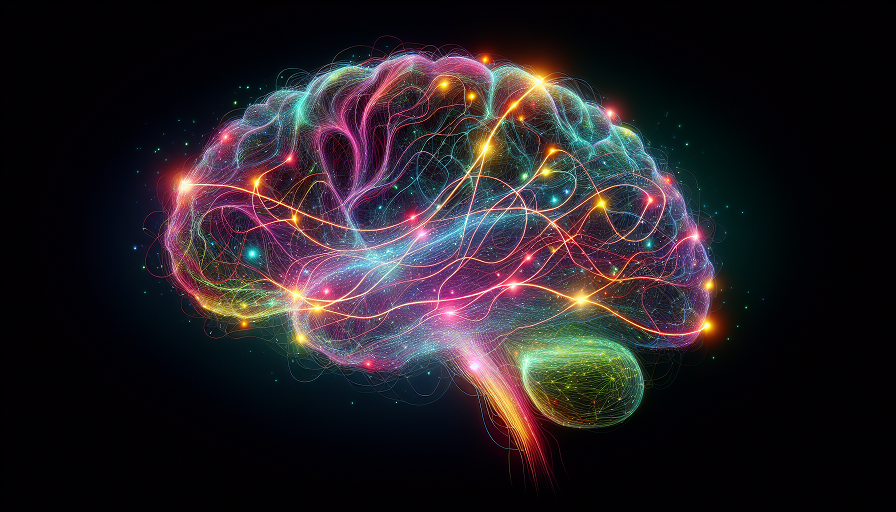
Have you ever noticed how a walk in the woods or a hike up a mountain clears your mind and leaves you brimming with fresh ideas? Outdoor adventures aren’t just recreational—they’re powerful tools for enhancing creativity and sharpening problem-solving skills. The combination of physical activity, natural surroundings, and mental stimulation creates a perfect storm for unlocking your brain’s full potential.
Contents
How Nature Stimulates the Brain’s Creative Centers
Stepping into nature is like hitting the reset button on your brain. The natural world has a unique ability to recharge mental energy and spark creative thinking.
The Science of Creativity and Nature
Studies show that exposure to natural environments increases activity in the prefrontal cortex—the part of the brain responsible for creative thinking and problem-solving. Unlike urban settings, which bombard your senses with stimuli, nature provides a calming backdrop that lets your mind wander and explore.
The Role of the Default Mode Network
When you’re hiking or sitting by a stream, your brain’s Default Mode Network (DMN) activates. This network helps you reflect, connect ideas, and process information subconsciously, leading to those “eureka” moments.
Real-Life Application
Take Alex, a graphic designer stuck on a project. A weekend camping trip helped him disconnect from distractions, and by the end of it, he had fresh ideas for his design. Nature gave his mind the space it needed to recharge.
Building Problem-Solving Skills Through Outdoor Challenges
Outdoor adventures often involve navigating unfamiliar terrain, managing limited resources, or overcoming physical obstacles. These challenges are perfect practice grounds for honing problem-solving abilities.
Adapting to the Unexpected
Imagine you’re on a hike, and the trail is blocked by a fallen tree. You have to decide whether to climb over, find a way around, or turn back. These real-time decisions train your brain to think critically and stay calm under pressure.
Enhancing Logical Thinking
Activities like orienteering or rock climbing require strategic planning and quick adjustments. For instance, figuring out the best path up a climbing wall forces you to assess risks and make calculated moves.
Applying Lessons to Everyday Life
The problem-solving skills you develop outdoors translate directly to real-world scenarios. Whether you’re troubleshooting a work issue or navigating a difficult conversation, the resilience and adaptability you build in nature become invaluable tools.
How Physical Activity Enhances Mental Clarity
Outdoor adventures often combine physical exercise with mental stimulation, creating a dual benefit for brain health and cognitive performance.
The Cognitive Benefits of Exercise
Physical activity increases blood flow and oxygen to the brain, enhancing memory, focus, and overall cognitive function. Activities like hiking, biking, or kayaking engage your body and mind simultaneously.
Breaking Through Mental Blocks
Ever feel stuck on a problem, only to have the solution hit you during a walk? Movement helps release tension and stimulates brain chemicals like endorphins and dopamine, which improve mood and mental agility.
Supporting Mental Clarity with Nootropics
Pairing outdoor activities with brain supplements like Rhodiola Rosea or L-theanine can enhance focus and mental stamina, ensuring you make the most of your time in nature.
Fostering Mindfulness and Presence
The great outdoors naturally encourages mindfulness, helping you stay present and connected to the moment. This focus not only reduces stress but also enhances creativity and problem-solving.
The Role of Mindfulness in Cognitive Performance
When you’re immersed in nature—listening to the rustle of leaves, feeling the ground beneath your feet—you’re practicing mindfulness. This state of awareness reduces mental chatter and creates space for deeper thinking.
Practical Exercises for Outdoor Mindfulness
Try walking meditation during your next hike. Focus on the rhythm of your steps or the sound of birds around you. This practice sharpens your attention and helps you notice details you might otherwise overlook.
Real-World Inspiration
Writers like Thoreau and naturalists like John Muir found their most profound insights in nature. Their works remind us that being fully present in the outdoors can inspire breakthroughs in thought and creativity.
Enhancing Social Connection and Teamwork
Outdoor adventures are often shared experiences, fostering collaboration and deepening relationships. These social connections boost emotional well-being and improve group problem-solving dynamics.
Collaborating in Outdoor Activities
Activities like group hikes, team-based obstacle courses, or even camping trips require communication and cooperation. Solving challenges together builds trust and improves interpersonal skills.
Learning from Different Perspectives
Each member of a group brings unique strengths and ideas. For example, while navigating a trail, one person might excel at reading maps while another notices environmental markers. Combining these perspectives leads to better outcomes.
The shared effort of overcoming challenges in nature creates strong social bonds. These connections not only enhance your mood but also make collaborative problem-solving more effective in other areas of life.
The Transformative Power of Outdoor Adventures
Outdoor adventures offer far more than scenic views and physical exercise—they’re catalysts for mental growth. By stimulating creativity, sharpening problem-solving skills, and fostering mindfulness, they equip you to tackle challenges with renewed clarity and confidence. Pair your next adventure with nootropics for enhanced mental performance, and let the natural world guide you to new heights of inspiration.

